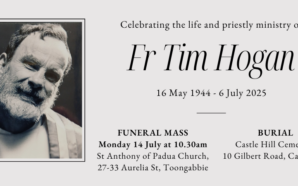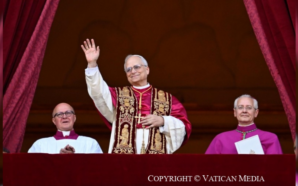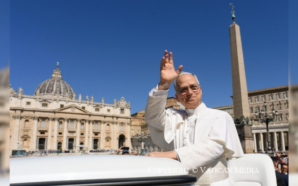Homily for the 31st Sunday in Ordinary Time
3 November 2024
Readings: Deuteronomy 6:2-6; Psalm 18; Hebrews 7:23-28; Mark 12:28-34
Pope Francis has published his fourth encyclical entitled Dilexit Nos which takes as its starting point: “‘He loved us’, Saint Paul says of Christ (cf. Rom 8:37), in order to make us realise that nothing can ever ‘separate us’ from that love (Rom 8:39).”[1] The encyclical is a lengthy reflection on the heart of Christ.
Listen at https://soundcloud.com/frank-brennan-6/homily-31124
Francis has now produced four encyclicals. The first Lumen Fidei published just three months after his election as pope was largely the work of Pope Benedict. Like everything Benedict wrote, it was precise and to the point. It came in at about 19,000 words with 50 footnotes. In the three encyclicals coming from the pen of Francis, there are many more words and four times as many footnotes. I’ve often thought that he needs a good editor. In Laudato Si published in May 2015, Francis put before us the need to have a care for the earth and a care for those on the margins, while responding to God’s love and attending to our need for interior peace and freedom. In Fratelli Tutti published in October 2020, Francis provides us with a compendium of his own writings which bear out St Francis of Assisi’s insight that ‘the essence of a fraternal openness … allows us to acknowledge, appreciate and love each person, regardless of physical proximity, regardless of where he or she was born or lives’. Both Laudato Si and Fratelli Tutti contain great challenges to us trying to live a good life in the world taking seriously the science, politics, and economics which impact on us all, especially those on the margins and peripheries.
This latest encyclical is an altogether different piece of writing. Once again, it is long and once again there are lots of footnotes. This pope now aged 87 was brought up at a time when people, especially in countries like Argentina, had a great devotion to the Sacred Heart. At his general audience on 5 June 2024, Francis noted that June was a ‘month dedicated to the Sacred Heart’. He recalled that we had just passed ‘the 350th anniversary of the first manifestation of the Sacred Heart of Jesus to Saint Margaret Mary Alacoque’. He said he was proposing to publish a document ‘in order to re-propose today, to the whole Church, this devotion imbued with spiritual beauty’. He told the general audience: ‘I believe it will do us great good to meditate on various aspects of the Lord’s love, which can illuminate the path of ecclesial renewal, and say something meaningful to a world that seems to have lost its heart.’[2]
So what is there to help us regain our heart? In today’s gospel, a scribe asks Jesus which is the first of all the commandments. Mark has Jesus repeat Moses’ formula from the Book of Deuteronomy: ‘You shall love the Lord your God with all your heart, with all your soul, with all your mind, and with all your strength.’
We all know what it is to love with all your heart. We can all recognise a broken heart. We can all recognise a full heart. We know what it is to give our heart and soul to any enterprise. Some critics of Francis have claimed that his main encyclicals Laudato Si and Fratelli Tutti are too focused on a social agenda with insufficient attention on our relationship with Jesus. Well, he is doing all he can to put that right in this encyclical.
Francis quotes a lot of philosophers, saints, and poets in this encyclical. He even quotes his grandmother. Some of the saints were new to me: names like Lutgarde, Mechtilde of Hackeborn, Pius of Pietrelcina, and Gertrude of Helfta. He describes the heart as the locus of desire, the place where important decisions take place uniting the rational and instinctive aspects of the person. He says:
‘Universal human experience has made the image of the heart something unique. Indeed, throughout history and in different parts of the world, it has become a symbol of personal intimacy, affection, emotional attachment, and capacity for love. Transcending all scientific explanations, a hand placed on the heart of a friend expresses special affection: when two persons fall in love and draw close to one another, their hearts beat faster; when we are abandoned or deceived by someone we love, our hearts sink. So too, when we want to say something deeply personal, we often say that we are speaking “from the heart”. The language of poetry reflects the power of these experiences.’[3]
He suggests that what theology does not resolve in theory, spirituality can resolve in practice. He concedes that ‘It might appear to some that this aspect of devotion to the Sacred Heart lacks a firm theological basis, yet the heart has its reasons.’ The spirituality of the saints over the centuries can help us, as can the reflections offered by the popes of recent times. Thankfully, Francis is not being too prescriptive. He notes:
‘We need to remember that the visions or mystical showings related by certain saints who passionately encouraged devotion to Christ’s heart are not something that the faithful are obliged to believe as if they were the word of God. Nonetheless, they are rich sources of encouragement and can prove greatly beneficial, even if no one need feel forced to follow them should they not prove helpful on his or her own spiritual journey.[4]
If it helps, use it. If not, don’t. As you would expect, Francis insists that our personal spiritual experience should result in a communal missionary commitment. We are to bring the love of Christ’s heart to the world. We will have the renewed energy and boundless hope to do that only if in our relationship with Jesus, heart speaks to heart (Cor ad cor loquitur) as John Henry Newman used to say.
I’ll conclude with a couple of key questions Francis asks about how to bring the love of the heart to the world:
‘What kind of worship would we give to Christ if we were to rest content with an individual relationship with him and show no interest in relieving the sufferings of others or helping them to live a better life? Would it please the heart that so loved us, if we were to bask in a private religious experience while ignoring its implications for the society in which we live? Let us be honest and accept the word of God in its fullness. On the other hand, our work as Christians for the betterment of society should not obscure its religious inspiration, for that, in the end, would be to seek less for our brothers and sisters than what God desires to give them.’[5]
The first commandment is: You shall love the Lord your God with all your heart,
with all your soul,
with all your mind,
and with all your strength.
The second is this:
You shall love your neighbour as yourself.
There is no other commandment greater than these.
Be of good heart, and give your heart to our broken world. Cor ad cor loquitur.
Fr Frank Brennan SJ is serving as part of a Jesuit team of priests working within a new configuration of the Toowong, St Lucia and Indooroopilly parishes in the Archdiocese of Brisbane. Frank Brennan SJ is a former CEO of Catholic Social Services Australia (CSSA). Fr Frank’s latest book is An Indigenous Voice to Parliament: Considering a Constitutional Bridge, Garratt Publishing, 2023 and his new book is ‘Lessons from Our Failure to Build a Constitutional Bridge in the 2023 Referendum’ (Connor Court, 2024).
[1] See https://www.vatican.va/content/francesco/en/encyclicals/documents/20241024-enciclica-dilexit-nos.html
[2] See https://www.vatican.va/content/francesco/en/audiences/2024/documents/20240605-udienza-generale.html
[3] Dilexit Nos #53
[4] Dilexit Nos #83
[5] Dilexit Nos #205








